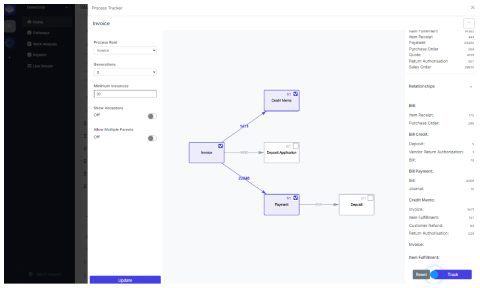ERP Implementation: Solveing the NetSuite Implementation Cost
Understanding the NetSuite implementation cost is crucial for any business aiming to streamline operations and drive growth through ERP solutions. For a quick overview:
- Cost Range: Typically between $25,000 and $75,000.
- Primary Factors: Company size, implementation complexity, industry requirements, and modules selected.
- Types of Costs: NetSuite licenses, hardware, customization, support, and project execution.
Adopting an ERP system like NetSuite can transform your business by integrating everything from financial management to CRM functionalities. However, the journey from initial planning to go-live involves various costs that can influence your overall budget and ROI.

Understanding NetSuite Implementation Costs
When it comes to implementing NetSuite, understanding the various cost factors is key. These costs can vary widely based on several elements, including complexity, modules selected, company size, and specific industry requirements.
Key Components of NetSuite Implementation
A NetSuite implementation typically involves several critical phases. Each phase comes with its own set of activities and costs:
Findy and Analysis Phase
This initial phase is all about understanding your business processes and requirements. It involves creating a Business Requirement Document (BRD) and consulting fees. The time investment for this phase can range from 50 to 150 hours, costing between $7,500 and $37,500.
Configuration and Deployment
During this phase, NetSuite is set up based on the requirements identified in the findy phase. This includes system configuration, customization, and user acceptance testing. The cost here varies depending on the complexity and can be estimated at 2-3 times the findy phase.
Data Migration
Migrating data from legacy systems like QuickBooks to NetSuite can be challenging. The time required for data migration depends on the volume and quality of your data, typically ranging from 5 to 50 hours. The cost for professional services related to data migration can vary significantly.
Customizations and Integrations
NetSuite offers customization options through SuiteScripting and SuiteFlow. Integrations with other systems (e.g., CRM, eCommerce) can also add to the cost. Integration platforms like Jitterbit or Celigo can cost between $5k and $25k annually, plus setup fees ranging from $5k to $50k.
Training and Support
End-user training is crucial for the successful adoption of NetSuite. Training costs can range from $5,000 to $15,000. Additionally, ongoing support might be necessary, which can incur further costs.
Typical Cost Ranges
The cost of a NetSuite implementation can vary significantly depending on the size and complexity of your business:
For Small to Medium-Sized Businesses (SMBs)
- One-Time Fees: $25,000 – $75,000
- Ongoing Costs: Annual subscription fees for licenses and modules, plus any additional support or training costs.
For Enterprises
- One-Time Fees: $75,000 – $100,000 or more, depending on the scope and complexity.
- Ongoing Costs: Higher subscription fees due to more users and modules, plus extensive support and training needs.
Additional Cost Factors
Several other factors can influence the overall NetSuite implementation cost:
- Company Size: Larger companies with more users and complex processes will incur higher costs.
- Industry Requirements: Specific industries may require custom development and additional modules.
- Modules Selected: The more modules you need (e.g., financial management, CRM, inventory management), the higher the cost.
- Transaction Volume: Higher transaction volumes may necessitate more robust configurations and integrations.
Understanding these components and typical cost ranges can help you budget effectively for your NetSuite implementation, ensuring you get the most value from your investment.

Next, we’ll dive deeper into each phase to give you a detailed breakdown of costs.
Detailed Breakdown of NetSuite Implementation Costs
Findy and Analysis Phase
The findy and analysis phase is where you set the foundation for your NetSuite implementation. This phase involves:
- Business Requirement Document: Detailing your business processes, goals, and objectives.
- Consulting Fees: Typically, consulting services range from $150 to $250 per hour. Depending on your business complexity, this phase can take 50 to 150 hours, costing between $7,500 and $37,500.
This initial investment is crucial to avoid costly changes later on.
Configuration and Deployment
Once you have a solid plan, the next step is configuration and deployment. Here’s what this phase includes:
- Setup: Building and configuring your NetSuite instance according to your requirements.
- Customization: Tailoring NetSuite to fit your specific needs. This might involve custom coding or using drag-and-drop workflows.
- User Acceptance Testing: Ensuring the system works as expected before going live.
Expect to spend 100 to 300 hours, costing between $15,000 and $75,000, depending on complexity.
Data Migration
Migrating data from your legacy systems to NetSuite is often overlooked but essential. For a typical SMB-sized company moving from QuickBooks:
- Time Investment: 5 to 50 hours, depending on data quality.
- Cost: This can add up to several thousand dollars.
Ensuring your data is clean and well-organized can save you a lot of headaches down the road.
Customizations and Integrations
Customization allows you to tailor NetSuite to your unique needs. You have two main options:
- SuiteScripting: For custom business logic and automation.
- SuiteFlow: For drag-and-drop workflow customizations.
Integrations are also crucial for a seamless experience. Popular options include:
- Jitterbit
- Celigo
- Dell Boomi
Integration projects can cost between $5,000 and $50,000, with annual subscription fees ranging from $5,000 to $25,000.
Training and Support
End-user training is key for a successful implementation. Options include:
- NetSuite Essentials: A must for at least one project team member.
- End-User Training: Ongoing training to ensure your team makes the most of NetSuite.
Budget around $5,000 to $15,000 for training-related expenses. This investment ensures your team can fully use the new system.
By understanding these detailed cost components, you can better plan and budget for your NetSuite implementation. Up next, we’ll explore the factors that influence these costs.
Factors Influencing NetSuite Implementation Cost
Company Size and Complexity
The size and complexity of your company play a significant role in determining NetSuite implementation cost.
- Number of Users: A small business with fewer users will generally incur lower costs. The Light Edition is suitable for companies with up to 10 users and 50 employees. Larger businesses may need the Mid-Market or Enterprise editions, which support more users and offer additional features.
- Number of Employees: More employees often mean more complex workflows and data management needs. For instance, the Mid-Market Edition is designed for businesses with 15 to 1,000 employees, while the Enterprise Edition is for companies with over 1,000 employees.
Industry Requirements
Different industries have unique needs that can influence costs.
- Custom Development: Industries like healthcare or manufacturing may require specific functionalities not available out-of-the-box. This often involves custom development work, which can drive up costs.
- Automation and Reporting: If your industry demands high levels of automation or specialized reporting, you might need additional customization. For example, NetSuite’s SuiteScripting allows developers to create custom business logic, while SuiteFlow automates workflows.
Modules and Transaction Volume
The specific modules you choose and the volume of transactions your business handles also affect costs.
- Financial Management: Modules for accounting, tax management, and financial reporting are often essential but can add to the overall cost.
- CRM and Inventory Management: Customer Relationship Management (CRM) and inventory management modules are crucial for many businesses, especially those in retail or e-commerce.
- Order Management and Billing: These modules streamline sales processes and billing, but they come at an additional cost.
- E-commerce: For businesses with online sales channels, integrating e-commerce modules can be essential. This includes everything from managing online orders to tracking inventory levels in real-time.
Specific Needs
Every business has unique requirements that can impact the cost.
- Custom Development: Tailoring NetSuite to meet specific business needs often involves custom development. This could be anything from creating unique dashboards to integrating with third-party applications.
- Automation and Reporting: Automating complex workflows and generating specialized reports can add to the cost. For instance, Jitterbit and Celigo are popular tools for integrating NetSuite with other applications, but they come with their own subscription fees and setup costs.
By understanding these factors, you can better anticipate the costs involved in implementing NetSuite for your business. Next, we’ll dive deeper into each phase of the implementation process.
Frequently Asked Questions about NetSuite Implementation Cost
How much is NetSuite implementation cost?
NetSuite implementation cost can vary widely, typically ranging from $25,000 to $100,000. This range depends on several factors:
- Complexity: A simple implementation with basic modules costs less than a complex, multi-module setup.
- Modules: The more modules you need, like financial management, CRM, or inventory management, the higher the cost.
- Company Size: Larger companies generally require more extensive setups, leading to higher costs.
Understanding these factors helps in getting a ballpark figure for your NetSuite implementation.
How much does a NetSuite implementation consultant charge per hour?
NetSuite implementation consultants typically charge between $170 and $250 per hour. The rate can vary based on:
- Experience and Expertise: More experienced consultants usually charge higher rates.
- Location: Consultants based in the U.S. may charge more than those from other countries.
- Project Scope: Complex projects might require specialized skills, affecting the hourly rate.
It’s crucial to ask where the consultants are based and their experience level to ensure you’re getting the best value for your investment.
What is the total cost of NetSuite?
The total cost of NetSuite includes several components:
- License Fees: These are annual costs based on the number of users and modules. License fees can be substantial, especially for larger enterprises.
- Implementation Fees: This includes planning, configuration, data migration, customizations, and integrations. Expect to spend between $25,000 and $100,000.
- Customizations: Custom features or functionalities can add to the cost. NetSuite developers charge between $150 and $250 per hour.
- Integrations: Tools like Jitterbit and Celigo can cost between $4,000 and $50,000 per year.
- Training: Training your team is essential and can add to the overall cost. Training packages vary widely in price.
- Support: Ongoing support ensures your system runs smoothly but comes at an additional cost.
By considering all these factors, you can get a more accurate estimate of the total cost of implementing NetSuite for your business.
Conclusion
At Nuage, we understand that digital change can be daunting, especially when it comes to implementing a robust ERP solution like NetSuite. With over 20 years of experience, we have guided countless businesses through this journey, ensuring they maximize their return on investment.
NetSuite offers a wide range of functionalities that can revolutionize your business processes. From financial management to CRM, inventory, and e-commerce, it’s a comprehensive solution designed to meet the needs of businesses of all sizes. However, the cost of implementation can vary widely based on factors such as company size, complexity, industry requirements, and the specific modules you choose.
Our team at Nuage specializes in tailoring NetSuite solutions to align perfectly with your business goals. We focus on optimizing workflows and empowering your team to open up the full potential of NetSuite. Whether you’re a small business looking to replace QuickBooks or a large enterprise migrating from another ERP system, we have the expertise to make your transition smooth and cost-effective.
Investing in NetSuite is investing in the future of your business. By working with a trusted partner like Nuage, you can steer the complexities of implementation with confidence. We offer customized solutions, ongoing support, and comprehensive training to ensure your team can fully use the new system.
Ready to take the next step? Find your ideal NetSuite solution with Nuage today.
By considering all these factors, you can get a more accurate estimate of the total cost of implementing NetSuite for your business.
